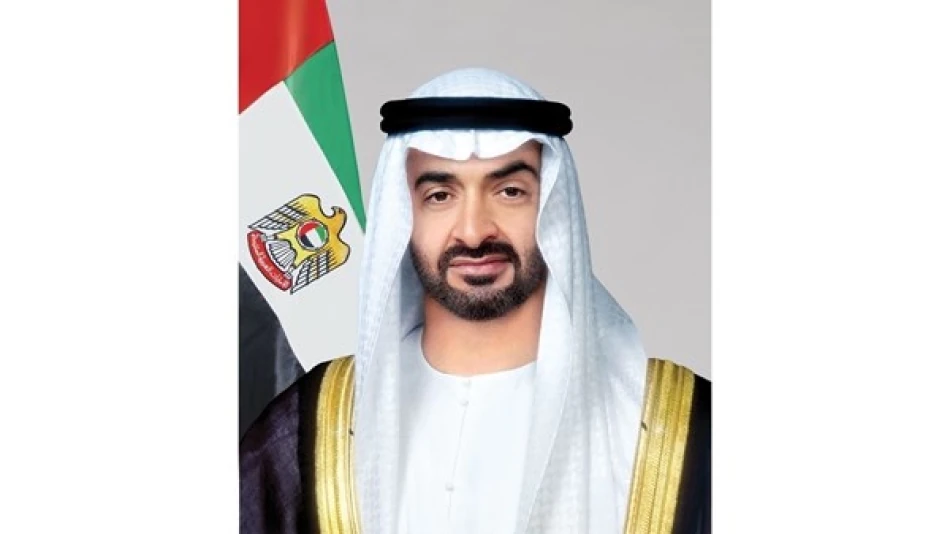
President Calls for Peace and Stability Across the Region and Globe
UAE President Calls for Global Peace and Stability on Prophet Muhammad's Birthday
Sheikh Mohammed bin Zayed Al Nahyan, President of the United Arab Emirates, has issued a message of peace and unity to mark the Prophet Muhammad's birthday, emphasizing the UAE's continued commitment to regional stability and interfaith harmony. The statement reflects the Emirates' broader diplomatic strategy of positioning itself as a moderate voice in Middle Eastern affairs.
Presidential Message Emphasizes Universal Values
In a post on X (formerly Twitter), Sheikh Mohammed bin Zayed described Prophet Muhammad as "the prophet of humanity, love, and noble morals," calling upon God to "spread peace and stability throughout the region and the entire world, so that humanity may enjoy security and harmony."
The message comes at a time when the Middle East faces multiple conflicts and tensions, from the ongoing war in Gaza to regional proxy conflicts involving Iran and its allies. The UAE leader's emphasis on universal peace rather than sectarian or regional concerns signals the country's diplomatic approach of bridge-building across religious and political divides.
Strategic Diplomacy Through Religious Messaging
Building Bridges Across Faiths
The UAE has increasingly positioned itself as a champion of religious tolerance and coexistence, hosting the Document on Human Fraternity signing between Pope Francis and the Grand Imam of Al-Azhar in 2019. Sheikh Mohammed's latest statement continues this trajectory, using Islamic religious observance to promote broader humanitarian values.
This approach differs markedly from more confrontational rhetoric often heard from other regional powers, reflecting the UAE's economic interests in maintaining stable international relationships that support its position as a global business hub.
Regional Leadership Through Moderation
The timing and tone of the message underscore the UAE's strategy of soft power projection through religious and cultural leadership. Unlike Saudi Arabia's more domestically focused Vision 2030 reforms or Qatar's sports diplomacy, the Emirates leverages interfaith dialogue and moderate Islamic messaging to enhance its international standing.
This measured approach has proven effective in maintaining the UAE's relationships with both Western allies and regional neighbors, even as tensions escalate elsewhere in the Middle East. The country's ability to host diplomatic initiatives while avoiding direct confrontation has made Abu Dhabi an increasingly important mediator in regional disputes.
Implications for Regional Stability
Sheikh Mohammed's call for global peace reflects broader Emirati concerns about regional instability affecting its economic ambitions. As the UAE continues developing itself as a financial center rivaling Singapore and Hong Kong, political turbulence in neighboring countries poses direct threats to investor confidence and business continuity.
The message also serves as a subtle reminder of the UAE's preferred approach to conflict resolution—emphasizing dialogue and economic cooperation over military confrontation. This philosophy has guided recent Emirati initiatives, from normalizing relations with Israel through the Abraham Accords to maintaining trade relationships with Iran despite international sanctions.
Most Viewed News

 Layla Al Mansoori
Layla Al Mansoori






